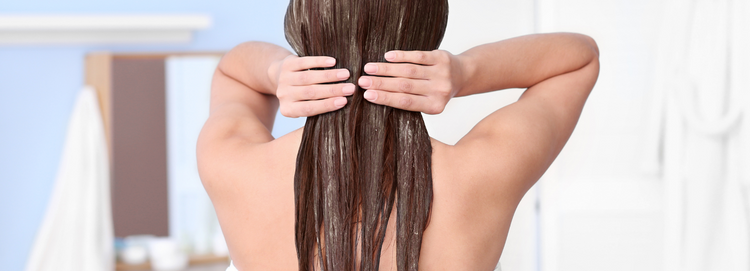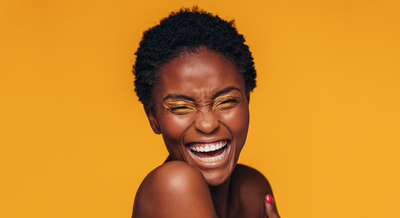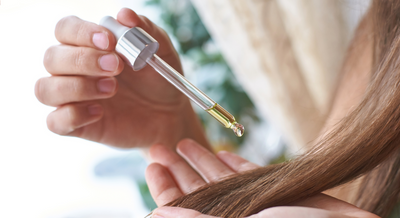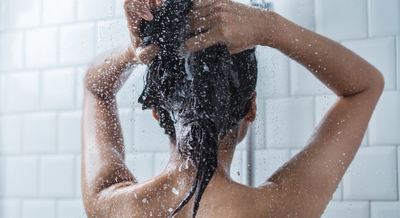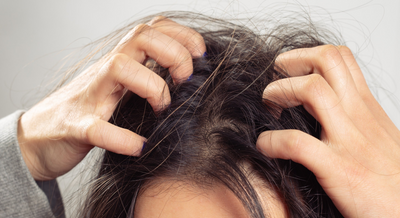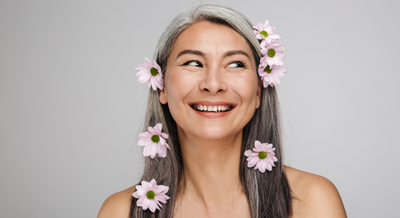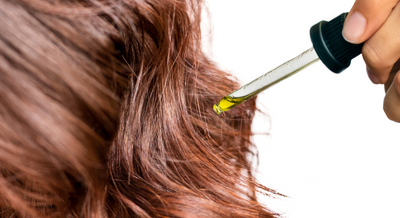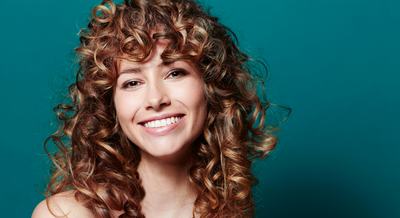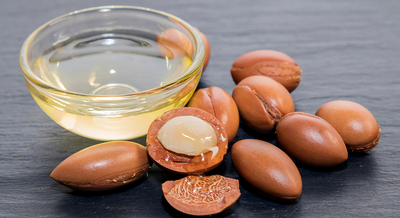Hair conditioners and hair masks are confusing subjects for many people as they can't understand the difference between the two.
People keep saying that they are using hair conditioner masks, but they don't know that masks repair hair from damage and conditioner work for hair maintenance. So, we can't call a mask a conditioner or vice versa.
Both hair masks and hair conditioners have their benefits and procedures to follow. Sometimes people mix conditioner with a hair mask and apply both at a time to get good results, but that won't do anything better.
Let's look at the difference between hair masks and conditioners and identify which is best for dry hair.
What Is A Hair Mask?
A hair mask combines natural nourishing oils and other ingredients that work perfectly for dry and damaged hair. It helps your hair to get its health back by nourishing and moisturizing. A hair mask is what profoundly hydrates and conditions your hair strands.
Usually, a hair mask is applied when your hair is washed and wet. If you have dehydrated hair, use a mask to let the moisturizing agents penetrate deep into your hair.
You can easily make a hair mask at home using some best ingredients like avocado, aloe vera, banana, coconut oil, etc. If you like heat styling, using such masks helps you reduce the risk of hair damage from heat.
What Is A Hair Conditioner?
On the other hand, a conditioner is a conditioning agent that helps make your hair shafts smooth, re-hydrate them, and reduce frizziness. Using conditioner prevents hair damage and hair breakage caused by sun exposure.
An essential benefit of using a conditioner is that it retains the sebum that your hair loses after a hair wash.
When you use a conditioner, it produces synthetic sebum oil and stabilizes the natural oil balance. There are two types of conditioners; the one you get from the market, made of nourishing oils and multiple moisturizing and conditioning agents.
Those agents include amino acids, plant oils, minerals, glycerol, propylene glycol, panthenol, erythritol, and sodium PCA. But if you want a conditioner with natural ingredients, you can make one at home by using eggs, lemon juice, banana, coconut oil, and honey.
What's the difference between a hair mask and a hair conditioner?
Currently, chemical treatments are increasing to make hair smooth and shiny, thus increasing the need to nourish hair with different products. To understand which hair product is suitable for your hair, we have differentiated both hair conditioner and hair mask. You can easily pick what goes well with your hair.
Conditioning and Deep Conditioning.
People use hair masks and conditioners to moisture and hydrate hair. But both differ in their performance. Hair masks perform better than conditioners in moisturizing hair because masks are reparative treatments that resolve hair problems by penetrating the hair shaft deeply. But conditioners can’t perform the task of masks, especially when you have severely damaged and dry hair.
Before and After Wash.
Well, washing your hair before applying any product is good as it results even better. You can use a hair mask on dry hair before washing, but you can't use a conditioner on dry hair before washing. Washing your hair is a must before applying a conditioner, while not for masks.
Time Span.
Using a hair mask daily is not possible for many reasons. The biggest reason for not applying masks is that it's time-consuming. To ensure penetration, you must leave a mask on your hair for at least fifteen to twenty minutes. While on the other hand, using conditioner on washed hair is much handier. You can apply conditioner after shampoo and enjoy smooth, silky hair.
Permanent Effects.
If we take both in terms of makeup, masks are like moisturizers; on the other hand, conditioners are like smoothing primers. When we apply a mask on hair, they are like nourishing treatments that provide nutrients and TLC to unhealthy, damaged, and dry hair. Whereas conditioners work as a cosmetic that helps hair look and feel good. Conditioners are a daily use product, not any special treatment, so conditioners are low in price.
Massage on Roots or Scalp.
A conditioner is usually used for hair strands, not scalp, unless prescribed explicitly as a massage-able scalp conditioner. Use conditioners on top of the hair, not the roots, as it would make hair very oily at the roots. To completely nourish each part of the hair, you can apply a mask from top to roots; it won’t make your hair oily.
What’s the best Conditioner and Mask for dry hair?
Many hair masks and conditioners are available, or you can make them at home. Some people want to know the best hair treatment for dry, damaged hair; below are some best masks and conditioners.
Mask for Dry Hair
What’s the best treatment for dry, frizzy hair? It is a common question by people; below is the answer.
Coconut milk
Many OTC hair treatments use coconut milk. Due to the high lauric acid content, coconut milk is a prominent ingredient. Using a coconut milk mask potentially strengthens your dry and damaged hair and promotes hair growth.
Curd
Curd is considered a cousin of yogurt. Using this milk-based food as a hair mask has many benefits as it is rich in proteins that can help soften and strengthen your hair. One can best treat dry skin of the scalp with the acidity present in the curd.
Conditioners for Dry Hair
Aloe Vera Conditioner
Aloe vera is the most used ingredient in all skin and hair care products and has a soothing effect on hair. It reduces hair damage and breakage, conditions dry hair, and penetrates your hair follicles quickly.
Egg Conditioner
Vitamin A, B, and E contribute to healthy, strong, soft hair. Egg yolk is rich in these vitamins; eggs are considered fantastic conditioners for dry hair.
Conclusions
If you are someone with dry hair, you can invest some money in hair masks and conditioners to nourish and improve the health of your hair. Hair masks and conditioners use ingredients that help repair and rejuvenate your hair strands.
Frequently Asked Questions
Q: What are the best hair masks for dry, damaged hair?
A: The list of DIY masks is enormous; you can choose one according to your hair needs. Masks like egg yogurt, tea water drains, almond oil, argan oil, honey, and rice water drains are perfect for dry, damaged hair.
Q: What is the best conditioning treatment for dry, damaged hair?
A: It depends upon the damage, but you can choose an Olive oil conditioner. It contains squalene, which acts as a moisturizer for soft hair. Olive oil also contains oleuropein, which helps hair growth, prevents breakage, and increases shine.
Q: Is there any difference between a hair mask and conditioner?
A: Yes, both differ in many ways. You can apply a hair mask on dry hair before washing but not conditioner. You can use conditioners daily, but masks are hard to apply regularly.
Q: Does conditioning your hair make it thicker?
A: No, Deep conditioner is not a hair-thickening product. Like other thickening sprays and lotions, it does not provide hair thickening benefits but nourishes hair and makes them manageable and shiny.
Q: Can I use a hair mask without conditioner?
A: Yes, hair masks and hair conditioners are two separate things. You can apply a mask even if you don't want to use a conditioner. Though using a conditioner after the mask makes hair smooth and shiny.

